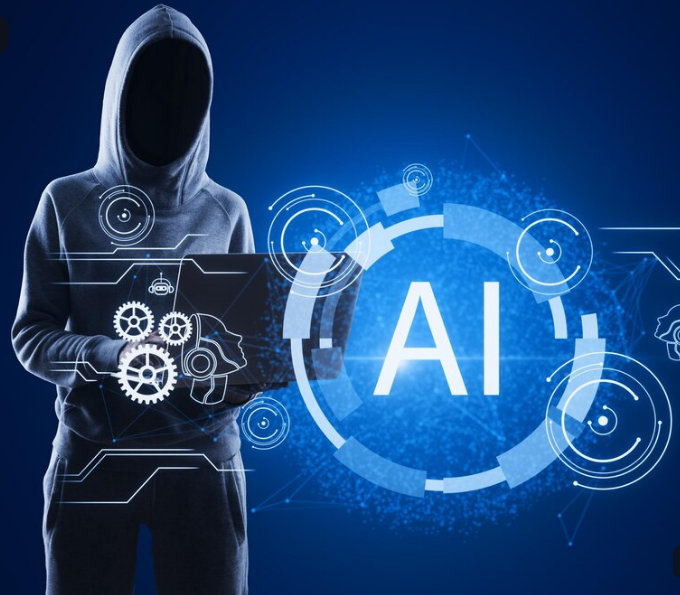Agentic AI: Empowering Machines to Think, Decide, and Act
Artificial Intelligence has come a long way—from rule-based systems to deep learning, natural language processing, and now, Agentic AI. This next evolution represents more than just smarter machines; it introduces machines that can act with intention. Agentic AI is reshaping how technology interacts with the world—by thinking, planning, adapting, and acting autonomously.
Let’s break down what makes Agentic AI so powerful and why it’s being hailed as the next major breakthrough in artificial intelligence.
What Does “Agentic” Really Mean?
The term “agentic” stems from the word “agent,” meaning an entity capable of independent action. In psychology, an agentic individual is one who sets goals, makes decisions, and takes responsibility for outcomes. When applied to AI, it means creating systems that:
- Define their own goals
- Plan actions to achieve them
- Adapt based on feedback
- Continue evolving without needing constant prompts
This is vastly different from conventional AI, which depends on narrow tasks and human-defined instructions.
The Core of Agentic AI
Agentic AI systems are built around three pillars:
- Autonomy
These systems are not reactive—they can assess situations, form goals, and act without needing an immediate input or trigger. - Intentionality
Unlike task-based AI, agentic systems don’t just wait for commands. They function with an internal model of what they want to achieve and why. - Adaptability
They learn from outcomes, adjust their strategies, and adapt to their environment in real-time.
Together, these characteristics make Agentic AI far more human-like in behavior—not in emotions, but in reasoning and decision-making.
Examples of Agentic AI in Practice
1. AI Project Managers
Imagine an AI system managing a software development project. Instead of waiting for human instructions, it sets timelines, allocates tasks, monitors progress, and reassigns resources—all based on changing priorities or delays. It becomes a true project-driving agent, not just a reporting tool.
2. Smart Supply Chain Bots
A logistics AI agent can predict demand changes, reroute shipments due to weather disruptions, and place orders for stock replenishment automatically—without human input.
3. AI Personal Assistants
Future digital assistants won’t just schedule meetings—they’ll understand your workload, identify productivity gaps, and even suggest breaks or task reordering based on cognitive load.
How Is Agentic AI Built?
Agentic AI is constructed using a combination of advanced AI models and system architecture, including:
- Reinforcement Learning
Teaching the agent to make decisions based on trial-and-error outcomes. - Planning Algorithms
Enabling agents to map out actions over time instead of reacting moment to moment. - Memory Systems
Agents remember past choices, successes, and failures to improve future decisions. - Cognitive Architectures
Frameworks like SOAR or ACT-R, which attempt to mimic human thought processes.
This infrastructure allows agents to process environments much like we do—learning, deciding, and acting over time.
Why Agentic AI Matters
- Reduces Human Micromanagement
Agentic systems reduce the need for step-by-step programming. Businesses save time, reduce errors, and get faster results. - Boosts Decision Quality
AI agents can analyze massive datasets, simulate different outcomes, and make decisions better than many humans in certain contexts. - Scales Easily
Once trained, agentic systems can operate across departments or domains with minimal additional setup. - Enables 24/7 Operations
With autonomous reasoning, AI agents can run critical operations continuously, adjusting as needed, even while humans are offline.
Risks and Concerns with Agentic AI
Like any powerful technology, agentic AI carries risks if not designed responsibly:
- Unintended Consequences
An agent may reach a goal in ways humans didn’t anticipate or approve of. - Loss of Oversight
As agents become more autonomous, understanding and tracing their decisions becomes harder. - Ethical and Social Impacts
If agents make decisions affecting people (e.g., hiring or policing), strict fairness and transparency standards must be in place. - Dependency on Agents
Overreliance on machine agents could erode human decision-making in complex or high-stakes situations.
This makes designing with ethics and control mechanisms an essential part of agentic AI development.
What’s Next for Agentic AI?
In the coming years, agentic AI will expand into areas like:
- Education: Adaptive tutors that not only teach but design personalized curriculum paths.
- Healthcare: Diagnostic agents that monitor chronic illnesses, recommend lifestyle changes, and adjust medication.
- Finance: Investment bots that not only suggest stocks but manage entire portfolios with self-improving strategies.
- Space Exploration: Rovers and drones that plan exploration missions, analyze findings, and alter course without commands from Earth.
The potential is massive—but only if built with intentional design and societal oversight.
Conclusion
Agentic AI is more than just a buzzword—it’s a foundational shift in how we understand and design intelligent systems. By building AI that can act with purpose and autonomy, we open up new realms of possibility for industries, society, and innovation.
However, this power comes with a need for responsibility. Developers must focus on transparency, ethics, and alignment with human values. Because in a future filled with agentic machines, ensuring they act not just intelligently—but wisely—will make all the difference.

